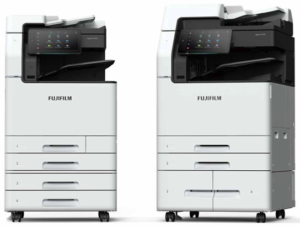Quocirca’s Future of Work 2025 study reveals how Gen Z, the digitally native generation, is poised to disrupt the workforce by bringing in different expectations and characteristics.
It is estimated that by 2030, those born between 1996 and 2012 will make up 30% of the workforce. Having experienced a shift to hybrid work at the beginning of their careers, this generation has distinct values around work-life balance, diversity and inclusion, and social responsibility.
As a generation, this group has witnessed significant global events and economic uncertainty, meaning they are typically independent, ambitious and often entrepreneurial.
However, Gen Z workers are also concerned about mental health and are prepared to leave companies that do not support employee well being.
In Quocirca’s Future of Work study, 51% of Gen Z planned to leave their job within the next year, with 31% citing improved salary as a reason. This was closely followed by 25% citing the need to improve mental health and well being. Company culture, transparent employee communication and support for employee mental health will therefore be key to attracting and retaining Gen Z workers.
While this generation has a strong preference for remote work and is comfortable working autonomously, it also craves personal connection.
The office is viewed not only as a place for collaboration, but also for personal growth. While collaboration is seen as the top benefit of the office for older generation respondents in Quocirca’s Future of Work study, this was placed third by Gen Z respondents. This group rates personal growth (29%) as the top benefit, followed by training and development (26%).
To move into leadership positions, Gen Z will rely on mentoring from the older generation leaders. As such, the workplace must therefore support collaborative work experiences and provide the spaces and technology to support learning and development.
While technology is second nature to Gen Z, this tech dependency does not mean they cannot be parted from their smartphones.
Quocirca’s study reveals that this generation is less dismissive of print playing a role in the future workplace. Today 48% of Gen Z respondents feel that printing is important to their business, compared to 76% of those over 35. However, they do not see the pronounced a drop in the importance of printing by 2025 as their older counterparts do. While digital communications may be favoured by this generation, today’s omnichannel world (that mixes digital and physical channels) offers a way for Gen Z to disconnect from the digital deluge.
When any new generation enters the workplace, it changes the dynamics of the work environment, demanding new approaches to company culture and workplace technology.
Gen Z’s apparent ambivalence to print may seem counter intuitive, but it is important not to dismiss the role print may play in the future workplace. While it is unlikely Gen Z will spark a print revival, they see it more likely to coexist with digital than older generations. This creates opportunity to consider how organisations can deliver creative and integrated print and digital collaboration platforms to improve employee engagement across today’s multi-generational workforce.
Find out more in Quocirca’s Gen Z and Future of Work report





